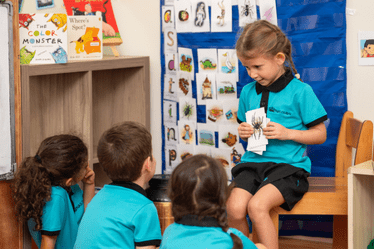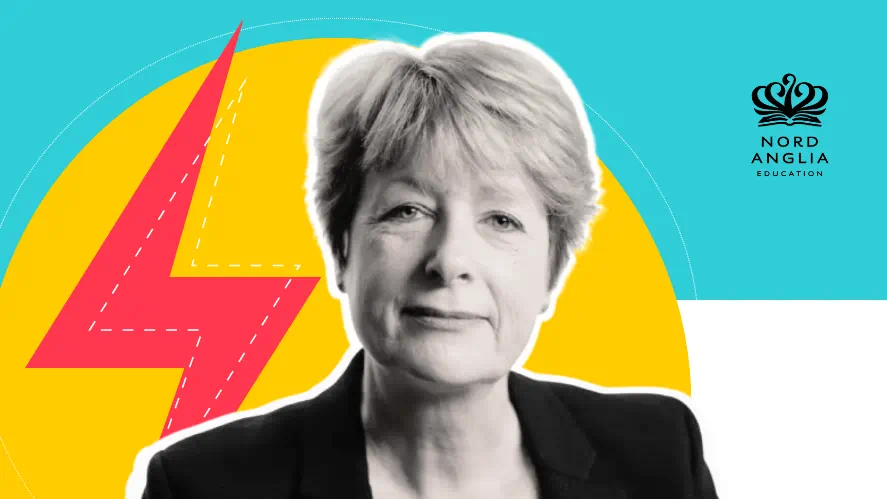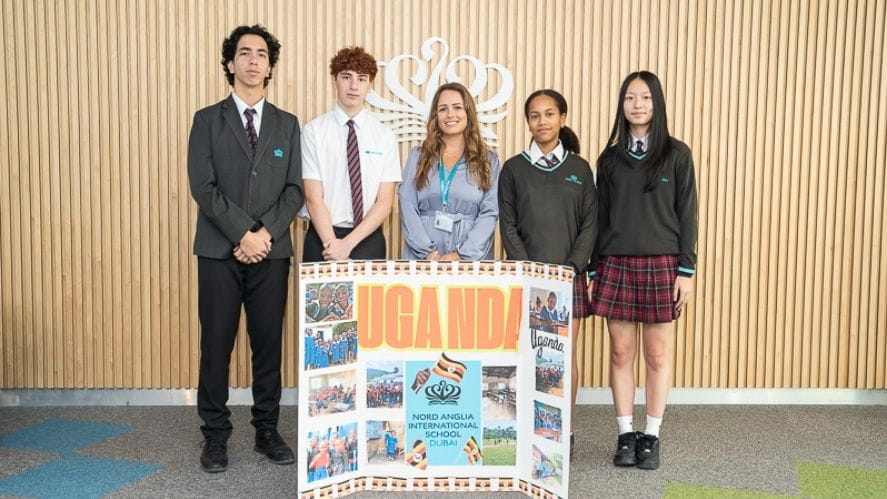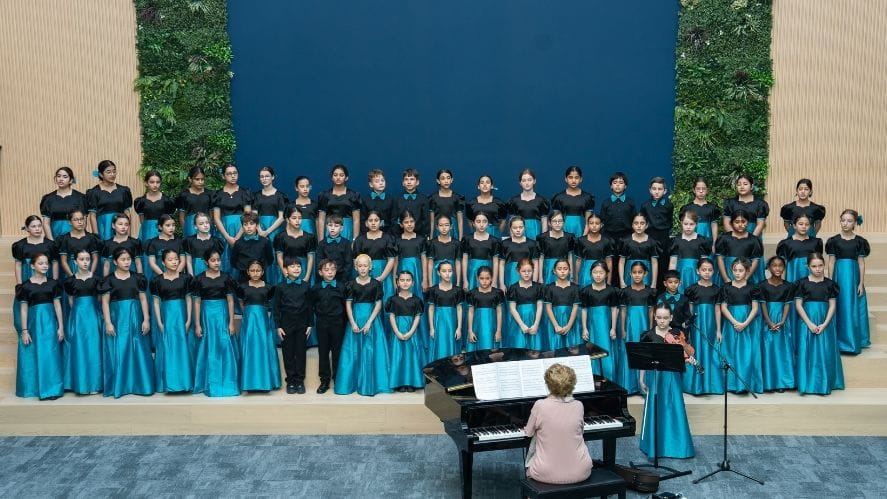Leading with care: Rethinking the Year 6–7 Shift
The leap from Year 6 to Year 7 isn’t just a change of classrooms, it’s one of the most emotionally charged and pivotal transitions in a student’s academic journey. For many young people, it marks their first step into adolescence, a new school environment, and a deeper sense of independence. But while it's often painted as exciting, for some, it feels overwhelming and disorienting (and let’s be honest, quite a few parents too).
And that’s exactly why at NAS Dubai, the way we lead that transition matters.
So, how do we support our students through one of the most significant transitions of their school lives?
Simple: we lead with care.
More Than Just a Move: Understanding the Transition
The Year 6 to 7 transition is complex. Children move from being the oldest in a familiar primary setting to the youngest in a sprawling secondary school. The comfort of one teacher and a close-knit class is replaced with new faces, shifting classrooms, different subjects, and higher expectations. Add to that the emotional rollercoaster of growing up, and it’s easy to see why this transition can be daunting.
At NAS Dubai, we see this shift as a golden opportunity, not just to support, but to empower. Because when students feel safe and supported, they don’t just survive the transition, they thrive in it.
It Starts Early
We don’t wait until September to start the conversation. We begin the transition journey in Year 6.
“By the time our students walk into Year 7, we want the space and the people in it to feel familiar,” says a Year 7 Tutor. “That sense of belonging doesn’t happen by accident. It’s something we build together.”
Here’s how:
Secondary Taster Days: Year 6 students are invited to experience a day in the life of Year 7, complete with subject rotations, tutor time, and even lunch in the secondary canteen.
Student-Led Q&As: We run informal sessions where current Year 7s share what the transition was really like, what surprised them, what helped most, and what they wish they’d known.
“At first, I was scared I’d get lost or be the only one who didn’t know what to do. But everyone helped me, and now it feels normal. I like having different teachers and subjects, it makes the day go faster.” Year 7 student
Creating a Culture of Connection
The most effective transition programmes are rooted in relationships. At the heart of this is the connection between teachers and students, students and peers, and schools and families. Transition is never one-size-fits-all. That’s why our Year 6 and Year 7 pastoral teams work hand in hand to create a seamless handover, not just about academics, but the whole child.
Primary-Secondary Partnerships: We work closely with our Year 6 team to ensure a thoughtful, personal handover. It’s not just about grades, it’s about personalities, passions, and what makes each student tick.
Meet-and-Greet Opportunities: Before the term starts, new Year 7s spend a full day at school meeting their tutors, classmates, and key staff in a calm, friendly setting. It’s a chance to get familiar with the space, ask questions before the busy school buzz begins.
Peer Mentorship: Our peer mentors, older students who remember what the first day felt like, offer real advice, real reassurance, and maybe even the location of the elusive D block.
Soft Skills Over Schedules
It’s tempting to focus on timetables, lockers, and homework expectations during transition programmes. But the most meaningful support often comes from helping students develop the emotional tools they need to thrive.
Resilience and Self-Advocacy: We give students the tools to navigate their new world, bounce back from mistakes, and navigate new friendships, empowering them beyond the classroom.
Wellbeing Check-Ins: Our tutors and pastoral leads are always watching (in a friendly way). If a student is quiet, struggling, or simply not themselves, we notice. And we act. Whether through daily tutor time, wellbeing surveys, or casual chats, being seen matters.
Parents, We’ve Got You Too
Let’s be honest, watching your child take their first steps into secondary school is a big moment. Secondary school can feel like a closed door compared to the familiar, hands-on experience of primary school. We’re here to guide you through it, with clear communication, supportive parent sessions, and open doors (literally and figuratively).
Parent Welcome Sessions include everything from what’s in the school bag to what’s going on emotionally.
Coffee Mornings include relaxed Coffee Mornings early in the term, so parents can meet the Year 7 team, ask questions, and connect with other families going through the same transition.
Because when schools and families work together, magic happens.
The Long View: Transition as a Journey, Not an Event
The Year 6 to 7 transition shouldn’t be a one-off induction day or a glossy welcome pack. It should be a carefully designed, year-long journey starting in primary and extending well into Year 7. That’s what we do here at NAS: we lead with care, invest time and energy not just in logistics, but in culture.
“The Year 6 to 7 leap is only daunting if students feel they have to do it alone,” says the Head of Primary. “At NAS, they never do.”
Final Thoughts
Every child deserves to begin their secondary school journey with confidence, not fear. By prioritising empathy, communication, and connection, schools can turn a potentially rocky leap into a soft, supported landing.



.jpg?h=499&iar=0&w=887&rev=6c796104c67c464bb8f76eac783b48ca&hash=D0B6415DD5D5C71A0B101D5DA4E56E34)

